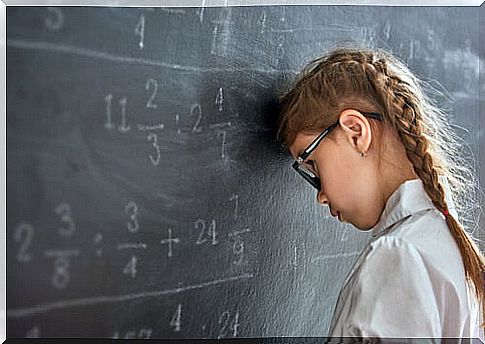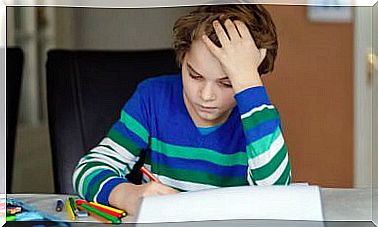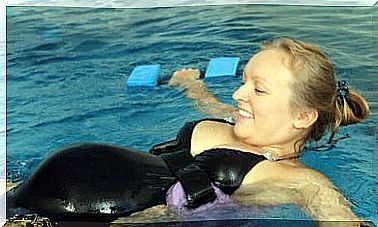Factors That Condition School Performance
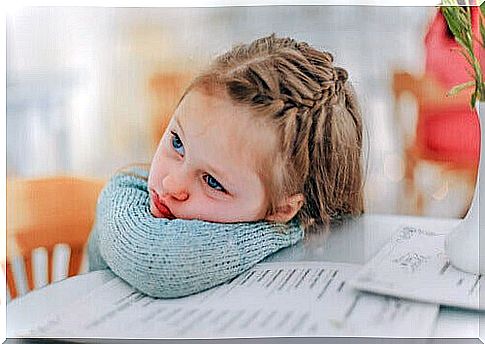
Children’s grades and school effectiveness are affected by many elements, both personal and external. Next, we review the main factors that determine school performance.
Whether a child does well or badly in school can depend on many things. Normally, when the ratings are not what you expect, you tend to put all the blame on him. However, education is a process in which many actors and circumstances intervene.
Among the factors that condition school performance we can find those inherent to the child, such as their personality, intellectual capacity, parenting mode and the will they show to carry out activities; and other external ones, such as the socioeconomic level, the capacity of the teacher or the school infrastructure.
Main factors that condition school performance
- The maturity of the child: at the beginning of the compulsory school period, there are children who are more prepared than others to face it. This is due to individual developmental issues. Over time, the child will get used to the new environment and adjust to the pace of the demands.
- Personality and emotional state: children whose emotional stability is greater show better performance in school and adapt better to their environment. They behave in a parsimonious, respectable and friendly manner. Those with signs of anxiety, aggressiveness, or depression have a harder time achieving good results.
- Parents: children will reflect the example that their parents have shown them throughout their lives. If they have observed responsible and persistent behaviors, they are very likely to emulate them. Preparation before the beginning of a new school stage is also a powerful tool that parents can provide their children. On the other hand, authoritarianism is not.
- Teachers: good relationship, respect and the ability of educators to transmit knowledge are key to good educational performance. As a parent, avoid making negative comments about the teacher in front of your child, as it could foster disrespect and confusion between their two most important authority figures: their mother and their teacher.
Other secondary factors
In addition to those previously exposed, we could add other elements that influence to a lesser extent the complex process of educating an infant.
First, the socioeconomic conditions in which they were and are raised. Unfortunately, inequality in the world grows more and more and this affects people’s way of life. Children raised in environments with greater containment and with better possibilities of feeding, resting and learning obtain better results in school.
Anyway, it is worth clarifying that this is not irreversible. Thanks to the efforts of many parents who sacrifice for the welfare of their children and the collaboration of various non-governmental organizations, many children have access to a better education in the countries most in need.
On the other hand, among the factors that condition school performance, the level of the educational system of a community, region or country, as well as the pedagogical tools that an institution has, also plays a role . The more and better resources an educational establishment possesses, the more efficient the educators’ task can be developed and the more children will learn.
How to help a child in the educational process
There are some daily actions that we can implement to collaborate with our children in their education:
- Accompany them. Reading, doing calculations and helping them with their homework will be of great help so that they better understand the topics studied, as long as they have autonomy to do on their own and make mistakes. In addition, this way they will establish responsible routines. Also think about participating in events and activities organized by the school so that they feel your support at all times.
- Encourage them, but without pressure. Show him that you are confident in his ability and that you expect him to do his best, even if it doesn’t become a burden.
- Do not punish them if they do badly. If you notice that he is trying hard and still does not get the expected results, do not be angry or scold him. Talk to him warmly and try to help him find a solution. You can go to support classes or study with him to reinforce what is needed.
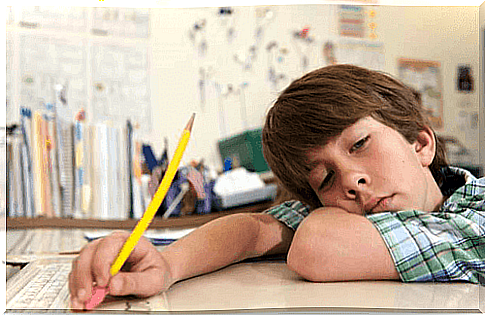
- Don’t constantly appeal to outside rewards. While it may work sometime and it’s okay to get an award for your effort, it shouldn’t be a habit. The child must understand that school is one of the first obligations in life and, as such, must be fulfilled for our own good.
Ultimately, you must remember that the child’s life should not revolve around studying. If you take him to this, he may think that you only care that he gets good grades and not his emotions or potential difficulties. Take it as part of your comprehensive training, also leaving room for sports, housework and friendships.
